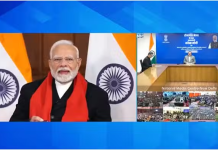Marriage does not mean that a woman has to have a physical relationship with her husband, the Delhi High Court said on Tuesday, while holding that physical force is not necessary for constituting the offence of rape.
A bench of acting Chief Justice Gita Mittal and C Hari Shankar said that in a marital relationship, both the man and the woman have a right to say no to a physical relationship. The court’s observation came while hearing pleas seeking to make marital rape an offence and others opposing it.
“Marriage does not mean that the woman is all time ready, willing and consenting. The man will have to prove that she was a consenting party,” the bench said.
The court did not agree with the submission of the non-profit, Men Welfare Trust, which opposed the plea to make marital rape an offence, that in spousal sexual violence, the use of force or threat of force are important elements to constitute rape.
“It is incorrect to say that force is necessary for rape. It is not necessary to look for injuries in a rape. Today, the definition of rape is completely different,” the court said.
The NGO’s representatives, Amit Lakhani and Ritwik Bisaria, argued that a woman already has protection from sexual violence in a marriage under the available laws, including Prevention of Women from Domestic Violence Act, harassment to married woman, sexual intercourse with wife without her consent while she is living separately and unnatural sex.
To this, the court said, if it was already covered under the other laws, why should there be exception in Section 375 of the Indian Penal Code, which says intercourse or a sexual act by a man with his wife is not rape.
“Force is not a pre-condition of rape. If a man puts his wife under financial constraint and says he will not give her money for household and kids’ expenses, unless she indulges in sex with him and she has to do it under this threat. Later, she filed a rape case against the husband, what will happen?” the court said.
The Men Welfare Trust is opposing petitions filed by the non-profit groups RIT Foundation and the All-India Democratic Women’s Association, which have challenged the constitutionality of Section 375 (which defines rape) of the Indian Penal Code on the ground that it discriminated against married women being sexually assaulted by their husbands.
The arguments remained inconclusive and will continue on August 8, the next date of hearing.
Earlier, Kolkata-based NGO Hridaya had also opposed the plea to make marital rape an offence, saying consent for physical relationship is for all time when a person enters the institution of marriage.










































